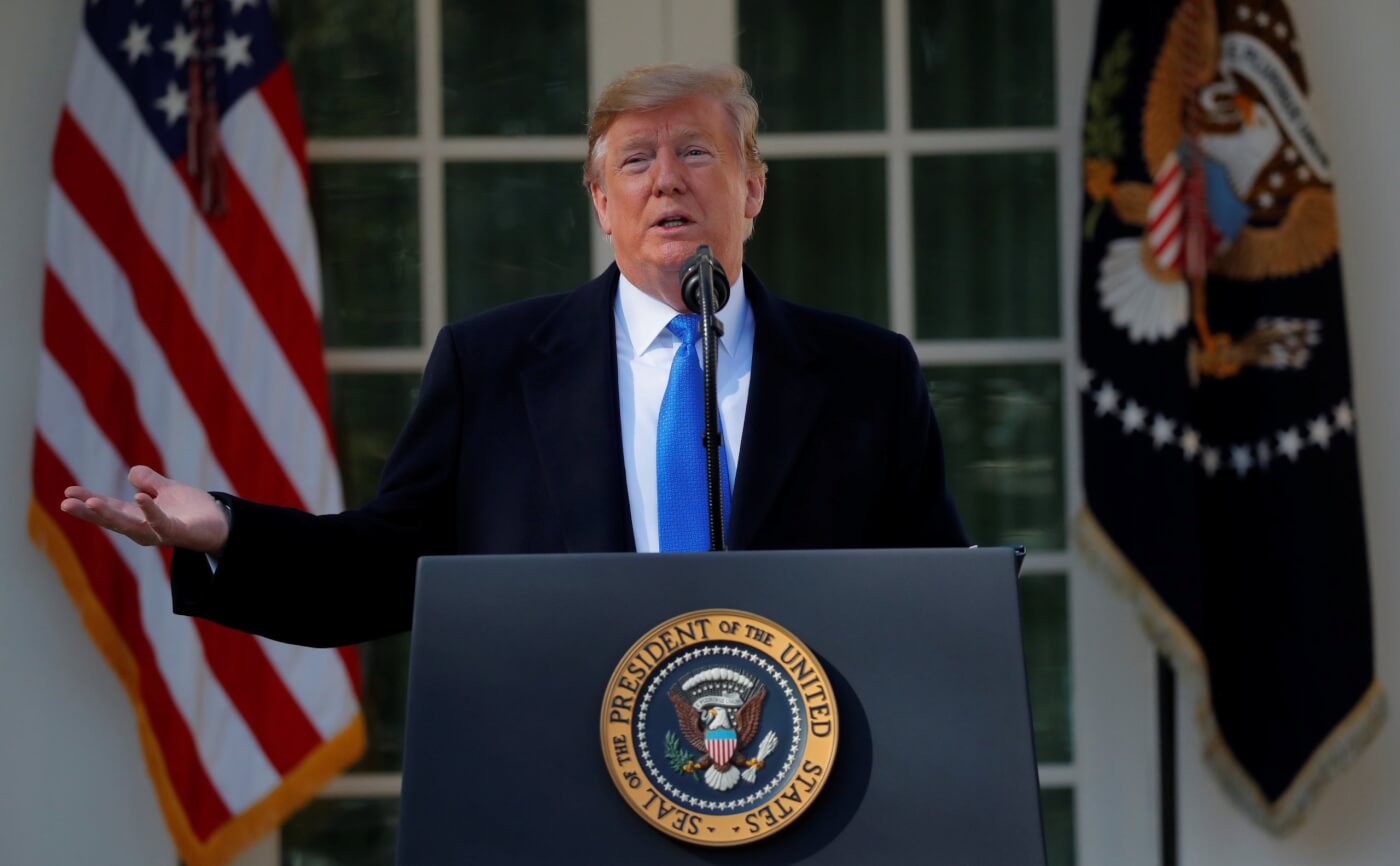Last week, the heads of four organisations overseen by the US Agency for Global Media (USAGM) were all dismissed by President Trump’s newly installed USAGM chief executive. Michael Pack, a conservative filmmaker and associate of alt-right propagandist Stephen Bannon, kicked off his tenure by firing the chiefs of RFE/RL, Radio Free Asia, the Middle East Broadcasting Networks and the Office of Cuba Broadcasting. The two top editors of Voice of America resigned days earlier.
The removals have raised concerns that Pack intends to turn the agency into a political arm of the administration, prompting NGOs, Democratic lawmakers and former USAGM board members to call on him to respect the independence of its news organisations and recognise its importance in promoting democracy abroad.
Jamie Fly, the ousted head of Radio Free Europe/Radio Liberty (RFE/RL), warned against the US falling behind authoritarian countries in the information space and called for “clear and consistent leadership, funding, and support” at the news organisation.
“The US cannot continue to fall behind China, Russia, or Iran in the info space. Our competitors are well funded and focused on repressing their citizens and undermining democratic govts everywhere. Our greatest weapon is our adherence to the truth and we should not discard it,” he said in a lengthy Twitter post.
In what a former official described as a “Wednesday night massacre”, Mr Pack also dissolved the boards of the first three of those networks and they were replaced by low-level Trump political appointees from unrelated federal agencies, along with Mr Pack and his chief of staff. The only external board member comes from the far-right Christian group Liberty Counsel Action, which is known for its militant anti-LGBTQ advocacy.
The Democratic chairs of the House Foreign Affairs Committee and House Appropriations Committee wrote in a letter to Mr Pack that they were “outraged” at Wednesday’s actions.
“Now, more than ever, it is critical that the USAGM staff are enabled and empowered to do this critical work and to continue the longstanding practice of not getting entangled in politics — and especially that they are not expected to shift their practice to propagandize or mislead audiences at the Trump Administration’s whim,” wrote Reps. Eliot Engel and Nita Lowey of New York.
Rep. Michael McCaul, the top Republican on the House Foreign Affairs Committee, said on Friday 19 June that he was concerned by the removals and Pack’s failure to consult with Congress.
“While every new leader has a right to bring in his or her own team, these mass terminations beyond just the USAGM executive leadership seem potentially damaging to both the operations & morale of the agency,” he wrote on Twitter.
“I hope CEO Pack will find time very soon to explain to me and my colleagues on the House Foreign Affairs Committee his reasons for making these decisions,” the Texas Republican said.
In another letter, four former USAGM board members, including two former ambassadors, urged Pack to “protect” the “critical US asset” he inherited “by respecting the firewall, maintaining qualified boards and management, and continuing the nonpartisan legacy.”
“These entities are a key pillar of the United States’ soft power. Their mission has perhaps never been as important as now when the US is engaged in a battle in the information space with anti-democratic regimes who are actively interfering in US domestic politics, debate about public health, and US elections,” the letter stated.
“Their independence is essential to their effectiveness in demonstrating the power of the free press and in getting trustworthy information to those in repressive regimes who cannot otherwise access that information,” they wrote.
That this manipulation of US government media is even possible is due to a misguided reform Congress passed four years ago, which abolished the independent, bipartisan board that previously governed the broadcasters and provided a buffer from the White House.
Congressional sponsors and Obama administration officials at the time brushed off concerns that it could destroy the very qualities of independence and journalistic integrity that have so far distinguished US government media. Mr Pack’s plans might just demonstrate how wrong they were.

